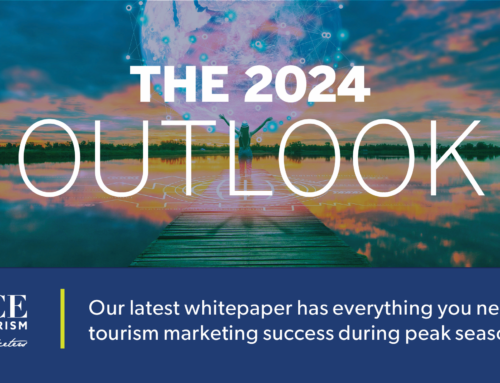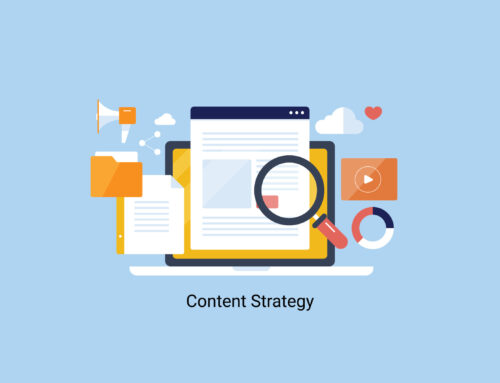How Tourism Organizations Can Find Inspiration for Content Strategy with AI Platforms
By now, you’ve probably seen the YouTube video where actor Ryan Reynolds uses ChatGPT to write a script for an ad. There’s definitely a wow factor there—lights, camera, chatbots! But just where does ChatGPT belong in terms of creating content for your site?
ChatGPT is a chatbot powered by GPT-3 (Generative Pre-trained Transformer 3), which is an advanced natural language processing (NLP) model developed by Open AI. ChatGPT can generate human-like text based on a given prompt, making it a useful tool for finding inspiration for blog topics, creating outlines for long-form content, and even assisting with quick ideas in case you find yourself battling a bout of writer’s block.
ChatGPT bills itself as a way to provide a quick and efficient way to generate blogs, website content, and social media posts. However, ChatGPT is notably robotic in tone, subject to repetitive word choice, and typically produces generic results for blog content. While the temptation may be to let the chatbot do all the heavy lifting for content—after all, who doesn’t love the idea of fast turnaround?!—it’s critical to have a skilled copy editor, writer, or other content expert on hand to make sure to review and adjust any output created by the platform.
One of the limitations to ChatGPT is that it populates information based on what’s already out there on the web. This not only means generic content, but it can also mean the chatbot creates duplicate content, which can signify a negative impact on your SEO score. What we know is that Google doesn’t love rehashed content, and that’s essentially what ChatGPT is capable of at this point in its existence. The best content brings something fresh, unique, and experience-driven to its readers. While Chat GPT-based content can force a bunch of words out quickly, it lacks the ability to create purposeful content that can truly set your destination apart. Again, this is why it’s critical that if you opt to use ChatGPT, you use it simply to get the content started rather than relying on what content the chatbot produces to be your actual final product.
A time-saving factor ChatGPT can provide in your content marketing strategy is fast research. For instance, you can ask it to compare your destination to a competitor’s, and in a matter of moments, it will quickly generate a number of facts about the two destinations in its lightning fast analysis between the two. With that, this type of AI can be a useful way to collect a ton of research and information into an accessible format that you can then implement for larger projects. Do note, however, that the ChatGPT system draws on data from no later than 2021, which means it cannot provide any information on current events. Also, it is not 100% accurate and unbiased. Depending on the inputs it receives, it can collect and therefore repeat incorrect information. This means it’s critical to always have a human cross-reference the information obtained via ChatGPT before including it in your blogs, e-blasts, social media posts, or other content marketing campaign elements.
For those who prefer to use an outline to organize content in the prewriting phase, you may find ChatGPT useful in that initial gathering and parsing out of thoughts. Additionally, say you’ve been producing blogs for years and now you find yourself a bit stumped about where to take your topics in the next quarter—ChatGPT can be prompted to create 10 blog topics on a subject of your choosing, create these topics in less than a minute, and inevitably save you some serious brainstorming time.
One major drawback of ChatGPT in its current state is its frequent “at capacity” status. In trying to test the platform, our content marketing team had to revisit the page several times per day to wait for the chatbot to be available for use. Fortunately, our Advance Travel and Tourism team of writers is never “at capacity,” and we are always welcoming of new content marketing clients. After all, content is often the one thing a brand needs while simultaneously being the one thing nobody on your team has time to execute. This is where a dedicated content marketing specialist can up the ante on your content marketing strategy by engaging with you and your destination to determine the right tone and cadence for the blog, all the interesting details to include, and the most effective ways to use the power of description to entice visitors to your destination. Our content marketing team takes pride in the communication that goes into each phase of creating travel and tourism content marketing. We take time to have conversations with your team about your destination’s branding needs because nobody knows your story better than you do. From what people may not understand about your destination to areas you hope to see growth to all the intricate stories told by the special places that exist in your area, we immerse ourselves in your world by partnering with you. Because content is so deeply personal, we believe it requires a human touch and that it always will.
ChatGPT and similar kinds of platforms can be used to enhance your creative thinking and brainstorming process. In a world of go, go, going, time is of the essence, and chatbots can be helpful in getting your plan for content moving. The bottom line is that ChatGPT can serve as a tool in your writing toolbox.
If you’re thinking about using ChatGPT to assist in creating content for your website, talk to a content marketing pro beforehand to ensure you create the best results possible. As always, reach out to any one of our Advance Travel and Tourism team members to learn more.






